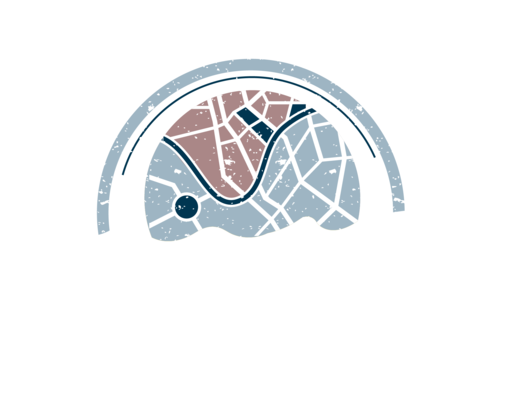How do evolutionary reconstruction and displacement of corporate power differ from “countervailing” strategies of containment and regulation?
The systemic configuration which came together around the middle of the 20th century in the United States and many European countries (and which started slowly unraveling by the 1970s) was one in which policymakers assumed the presence of large and powerful corporations, and progressive politics consisted of devising “countervailing” strategies aimed at pushing back and containing the power of these concentrations of private capital to determine social and political outcomes. The balance of forces in the system made possible significant gains through regulation and redistribution—like a progressive tax code with high rates for large corporations or a bevy of regulatory measures, including environmental and workplace safety laws. These measures largely left the basic pattern of OWNERSHIP of the economy intact.
Evolutionary reconstruction and displacement involve a different strategy, one that seeks to supplant rather than rein in corporate power, creating new institutions which directly advance community sustaining outcomes. Depending on the strength and creativity of local activists and political leaders, institutional “evolutionary reconstruction” leading to long term displacement can develop in different ways and at a different pace under different circumstances—with a mosaic of COOPERATIVES, employee-owned companies, community land trusts, sustainable local businesses, municipal enterprises, and community-based financial institutions slowly shifting facts on the ground and the balance of power they entail. In turn, such changes strengthen the hand of local policy-makers, opening the way for further advances.
At a larger level, the Affordable Care Act, in the main, represents a traditional attempt to regulate the outsized power of corporate health insurance providers by constraining the marketplace within which they operate. A single payer system, on the other hand, would displace such corporate entities—their function would be taken over by a new, PUBLIC entity, one like Medicare, which is essentially a publicly owned insurance company. Again, change of this kind, notably, can be a step-by-step process. For health insurance, activist efforts have focused on the state level—with the assumption that state efforts can lead to larger national changes down the road. (In Canada, a “single-payer” universal health insurance plan started in Saskatchewan, and then spread to the rest of the country.) (See PREHISTORY).
Evolutionary reconstruction and displacement offer one approach in a longer term theory of transformative CHANGE. To the extent the market share of corporations decrease, their political influence is likely to wane as well. Instead of hoping only to offset the power of corporate and other institutions that are producing undesirable social, economic, and environmental outcomes with an opposing force, in this approach regulation is not abandoned, but an important goal is also to displace corporations by institutional forms that inherently produce different outcomes.
Beyond this, over the longer haul, the creation of each new community-sustaining institution of the Pluralist Commonwealth can potentially help build power that lays the political groundwork for future efforts, leading ultimately to much broader national reconstruction. Every time a source of (negative) institutional power is taken off one side of the ledger, a source of potential (positive) institutional power is added to the other. Simultaneously, the political organizing needed to achieve local change offer ways to steadily build larger and more encompassing forms of power and larger scale institutional change. (Some organizations, like National People’s Action—now part of People’s Action—have developed impressive forty year plans which begin to sketch scenarios of even longer term change.)1
Ultimately, when future economic crises occur, instead of simply bailing out and nationalizing companies like General Motors at great public cost and then returning them to the owners who created the problems in the first place (as occurred in the most recent crisis), a new politics might one day be capable of turning them into new public-community-worker-owned enterprises building mass transit and high speed rail equipment as well as traditional (or self-driving) automobiles.
No one can predict the challenges truly transformative change will ultimately face. In eras of profound change violence and repression have commonly occurred both in other countries and in our own. What is critical at this stage of our evolving history is the development of new institutional forms and a new institutional political-economic vision, along with strategies based upon both, so that the unpredictable forms that change may ultimately take are anchored in practical experience and in a clear sense of systemic direction that offers promise of nurturing democracy, equality, community, liberty, ecological sustainability, and a radically different posture towards other nations.
Why are evolutionary reconstruction and displacement key strategic approaches in the building of a Pluralist Commonwealth?
To gain perspective it is important first to understand just how essential labor was in structuring the progressive political possibilities of the mid-20th century, and how much it is missed at the level of the system as a whole now that its power has been radically reduced by corporate attack and technological and global challenge. The great liberal economist John Kenneth Galbraith described the role of labor as providing “countervailing power”: the political power and institutional advantages enjoyed by corporations were offset by other institutional players. Labor unions, for Galbraith, by far the greatest check on the corporation. But labor’s capacity to meaningfully push back both in the workplace and in national politics at the systemic level has dwindled—with record low levels of American workers now organized in the private sector.2
This does not mean abandoning all traditional efforts. Any serious strategy must inevitably “walk on two legs.” Efforts to rein in and regulate the actions of corporations remain vitally important given the levels of pain and the looming ecological and climate catastrophes. Labor struggles remain no less important today than they were at the height of union power, even if their systemic import has been greatly reduced. We should take as much regulation and redistribution as we can get, while we also work to slowly build the institutions that displace corporate capitalism through reconstruction in favor of the pluralist commonwealth. Indeed, the steady development of wealth-building institutions at different local, state, and national levels offer the possibility over time of both slowly displacing corporate power and also building a new institutional basis for countervailing strategies.
In a larger sense, creating the new institutions of the Pluralist Commonwealth provide practical hand-holds on a larger and longer-term vision of how democratic change might ultimately be structured throughout the entire system.
Can we see displacement operative today?
The logic of displacement can be seen at work across the economy—in banking, healthcare, and economic development. PUBLIC banks at the state or city level like those being explored at this writing in Santa Fe and Philadelphia (and modeled in part on the 100-year-old state bank of North Dakota) take a brick out of the structure of political institutional power that makes certain private entities “too big to fail.” Ultimately, such banks also provide models which in turn suggest the direction for larger efforts that one day might ultimately displace Wall Street megabanks. In terms of healthcare, efforts are underway in California to pass legislation for a statewide single-payer healthcare system. Such an effort could potentially catalyze further changes such as happened in Canada where a form of single-payer universal health insurance started in Saskatchewan, and then spread to the rest of the country.
In Buffalo, New York, People United for Sustainable Housing (PUSH), has combined nonprofit ownership with legislative advocacy, direct action, and community organizing to promote green jobs, provide weatherization services, and build affordable housing. The organization holds 92 parcels of land in its nonprofit Buffalo Neighborhood Stabilization Company and has worked extensively with the State of New York to regain ownership of and redevelop abandoned lots and homes. In 2013, PUSH added 46 more units of affordable housing in the West Side community.3 Their work demonstrates that fighting for political change and building autonomous economic power through community/nonprofit ownership can go hand in hand.
See also:
COOPERATIVES, ECONOMIC CHANGE, OWNERSHIP, PREHISTORY, PUBLIC
Further reading
Cynthia Kaufman, Getting Past Capitalism: History, Vision, Hope (Lanham, MD: Lexington Books, 2012).
David Korten, “We Know Who Stole the Economy—National People’s Action Moves to Take It Back,” YES! Magazine, December 3, 2013.
Erik Olin Wright, Envisioning Real Utopias (New York, NY: Verso 2010), Chapter 10: “Interstitial Transformation.”
Gar Alperovitz, “Inequality’s Dead End — And the Possibility of a New, Long-Term Direction,” Nonprofit Quarterly, March 10, 2015, accessed November 3, 2016 Nonprofit Quarterly, March 10, 2015.
John Kenneth Galbraith, American Capitalism: The Concept of Countervailing Power (Boston, MA: Houghton Mifflin, 1952).
Keane Bhatt and Steve Dubb, Educate and Empower: Tools for Building Community Wealth (Takoma Park, MD: The Democracy Collaborative, 2015), 94-101.
Marjorie Kelly and Sarah McKinley, Cities Building Community Wealth (Takoma Park, MD: The Democracy Collaborative, November 2015).
Thad Williamson, Steve Dubb, and Gar Alperovitz, Climate Change, Community Stability, and the Next 150 Million Americans (College Park, MD: The Democracy Collaborative, September 2010).
- 1David Korten, “We Know Who Stole the Economy—National People’s Action Moves to Take It Back,” YES! Magazine, December 3, 3013, accessed November 3, 2016.
- 2“Table 3. Union Affiliation of Employed Wage and Salary Workers by Occupation and Industry,” US Bureau of Labor Statistics, 2015, accessed November 3, 2016.
- 3Keane Bhatt and Steve Dubb, Educate and Empower: Tools for Building Community Wealth (Takoma Park, MD: The Democracy Collaborative, 2015), 94-101.





























